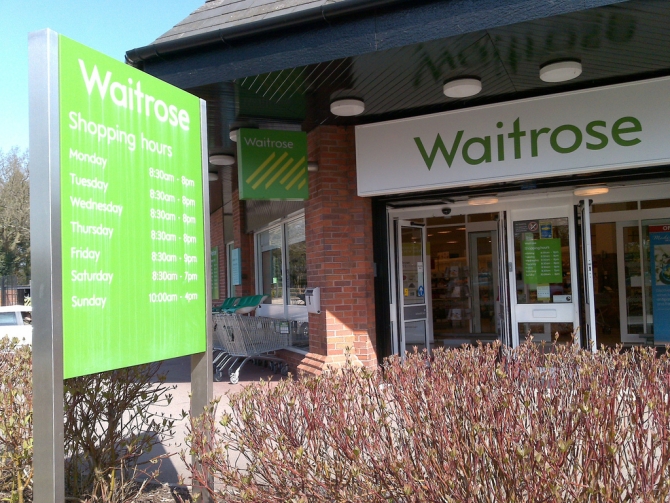Although the big four supermarkets have struggled in the face of competition from discounters such as Aldi and Lidl, high end retailers such as Waitrose have been relatively untouched by the phenomenon due to an extremely loyal customer base. However, it appears that this trend may be changing somewhat, as Waitrose has been forced to deliver its first profits warning for the current financial year.

This means that Waitrose is now the third retailer to release a profits warning in the current quarter, joining rivals Tesco and Morrisons in admitting that next month’s profits are unlikely to meet initial forecasts.
In part, this is due to tough comparative figures from last year when the retailer saw unprecedented success and soaring sales, yet managing director Mark Price insists the real reason for the disappointing announcement is the level of investment being channelled into growth at present.
He says; “We are in a period of unprecedented investment and this will have an impact on the profit we report next month.
“We are investing to enable us to compete effectively in this very tough market and to build a strong business for the future.”
As this investment programme is set to last for some time, there are concerns within the retail industry that the upmarket supermarket will fail to meet profit guidelines for the full financial year. Although Mr Price believes that sales will rise by around 4.5 per cent during August, this has not quite been enough to alleviate the scepticism emanating from analysts.
Waitrose remains one of the only supermarket brands in the UK declining to join the price war, as it has so far failed to lower prices in an attempt to fight competition from discounters.
However, this new investment will see it engage in price matching and promotional activity, hopefully building upon the success of the myWaitrose cardholder scheme which allows frequent customers to cash in on a free coffee and newspaper offer – cardholders can now also claim money off butter and milk during their weekly shop.
Unfortunately, despite these concessions, it appears that Waitrose is now being affected by the rise of the discounters. The latest figures from Nielsen show that Aldi’s market share has now leapfrogged Waitrose’s, as in the 12 weeks to the 19th of July the discounter’s market share rose to 5.2 per cent, leaving Waitrose lagging behind on just 5 per cent.
UK head of retailer and business insight at Neilsen, Mike Watkins, believes that the discounters will now seek additional sources of growth and may soon begin to focus more upon fresh fruit and vegetables – an area supermarkets such as Waitrose and Morrisons have traditionally dominated.
He says; “The discounters have been very effective at stealing share for packaged goods such as cans, packets and bottles.
“If they can also eat into fresh foods, which account for almost half of food and drink sales, we could see a seismic shift in the sector over the next six months.”
Previous Post
Is Google among the World’s Top Ten Property Owners?